Robins are curious creatures, or so I thought before I talked to a bird expert.
What prompted me to consult an ornithologist? I observed what I thought was unusual behavior on the part of a robin Sunday as I spent the day outside, doing yard work and reading on the deck.
A robin flew from a low-hanging tree branch to the second story window of a house behind ours in Waterville and fluttered all over it, back and forth this way, literally all day long.
It would perch on the tree branch for a moment or two, fly to the window, do its thing and then fly back to the branch and sit, only to do it all over again. On Monday, it did the same. On Tuesday and Wednesday, it was more intermittent, but the robin still kept up its routine.
On Sunday, as I watched the bird, I began to worry it might exhaust itself and die. It got to the point where I had a hard time looking over that way because I found it so sad and fruitless.
On Tuesday, I contacted bird expert Herb Wilson, who knew right away what the bird behavior was all about.
Robins are getting ready to reproduce, so their hormone levels are up, according to Wilson.
“It’s seeing its reflection in the window so it’s attacking the intruder. All the birds are hopped-up on hormones — they’re pretty feisty.”
Wilson, who is Leslie Brainerd Arey Professor of Biosciences Emeritus (retired) at Colby College, writes a column which appears every other week in the Maine Sunday Telegram. It also appears three or four times a year in the Morning Sentinel and Kennebec Journal.

A robin on Wednesday repeatedly flies and bumps up against a window reflecting itself and a tree at a house neighboring the home of Morning Sentinel reporter Amy Calder In Waterville. Rich Abrahamson/Morning Sentinel Buy this Photo
He told me that someone else told him about a bluebird they saw doing the same thing over the weekend — flying and fluttering all over a window. That person tried everything to get it to stop, including closing the window shades, but nothing worked.
I asked Wilson how long this behavior will go on. He assured me that the bird’s hormone levels will go down in a week or two and it will stop.
Is it possible a bird could exhaust itself beforehand and die? I asked.
“I don’t think so,” Wilson assured. “I think that they may get pretty darned tired but if they get to that point, they’ll go off and find something to eat …”
Ultimately, he said, the female will lay its eggs and she and her mate will become parents and worry more about their young ones, and less about the intruder.
Wilson likened the robin’s fluttering against the window to a human defending its territory from “another male trying to come in and steal his wife.”

A robin repeatedly flies into window reflection of itself and trees Wednesday at one of Morning Sentinel reporter Amy Calder’s neighbors In Waterville. Rich Abrahamson/Morning Sentinel Buy this Photo
I asked if he gets a lot of questions about birds behaving in this way, to which he said he receives a fair amount.
“I usually get four or five questions a spring about this sort of thing,” he said. “It’s just instinctual. They’re just being driven by their instinct, which is getting rid of the intruder. It seems sort of robotic but, in fact, it works.”
Just like with humans, I guess.
It’s amazing what we can learn about another species, if we take the time to really look and listen.
Amy Calder has been a Morning Sentinel reporter 33 years. Her columns appear here Saturdays. She may be reached at acalder@centralmaine.com. For previous Reporting Aside columns, go to centralmaine.com.
Copy the Story LinkSend questions/comments to the editors.

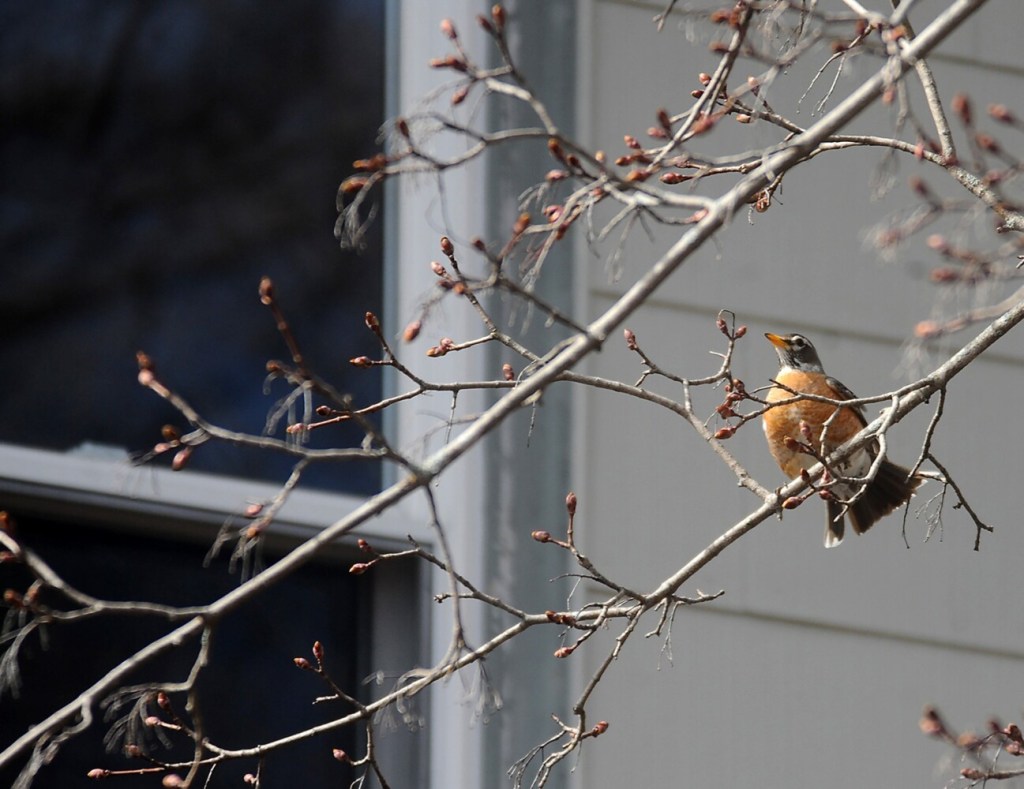
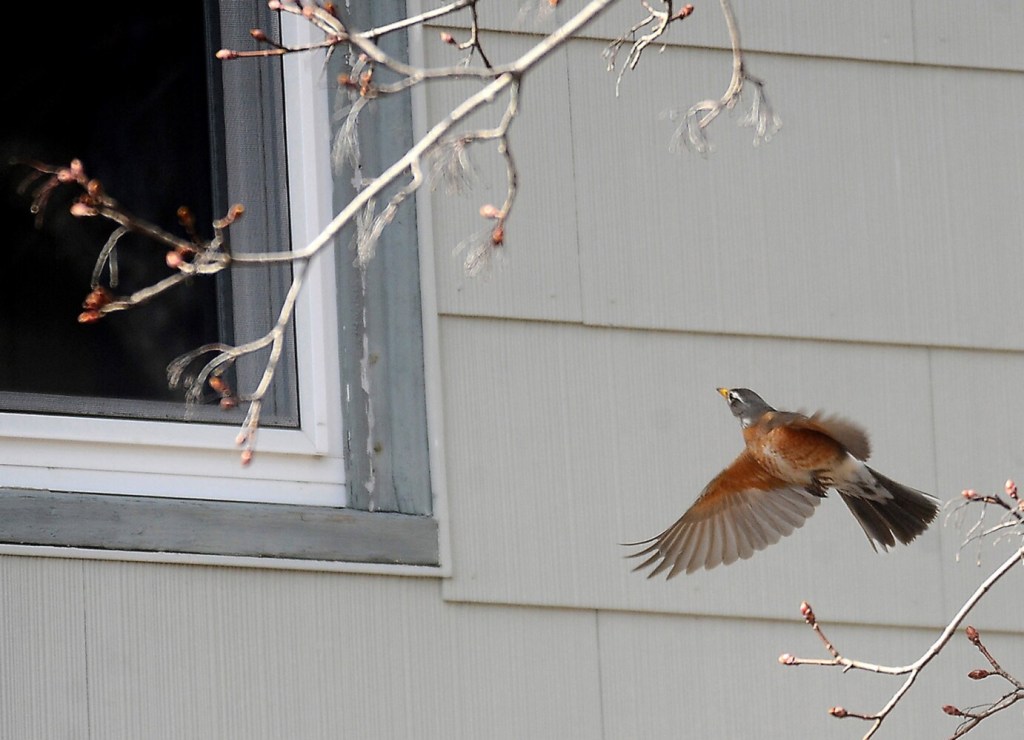
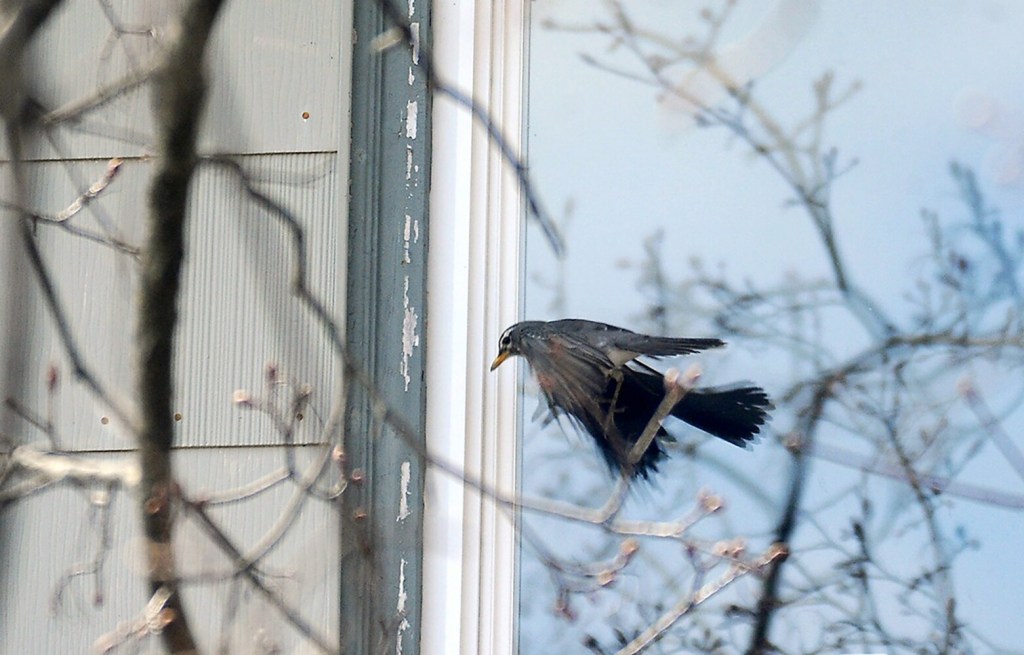
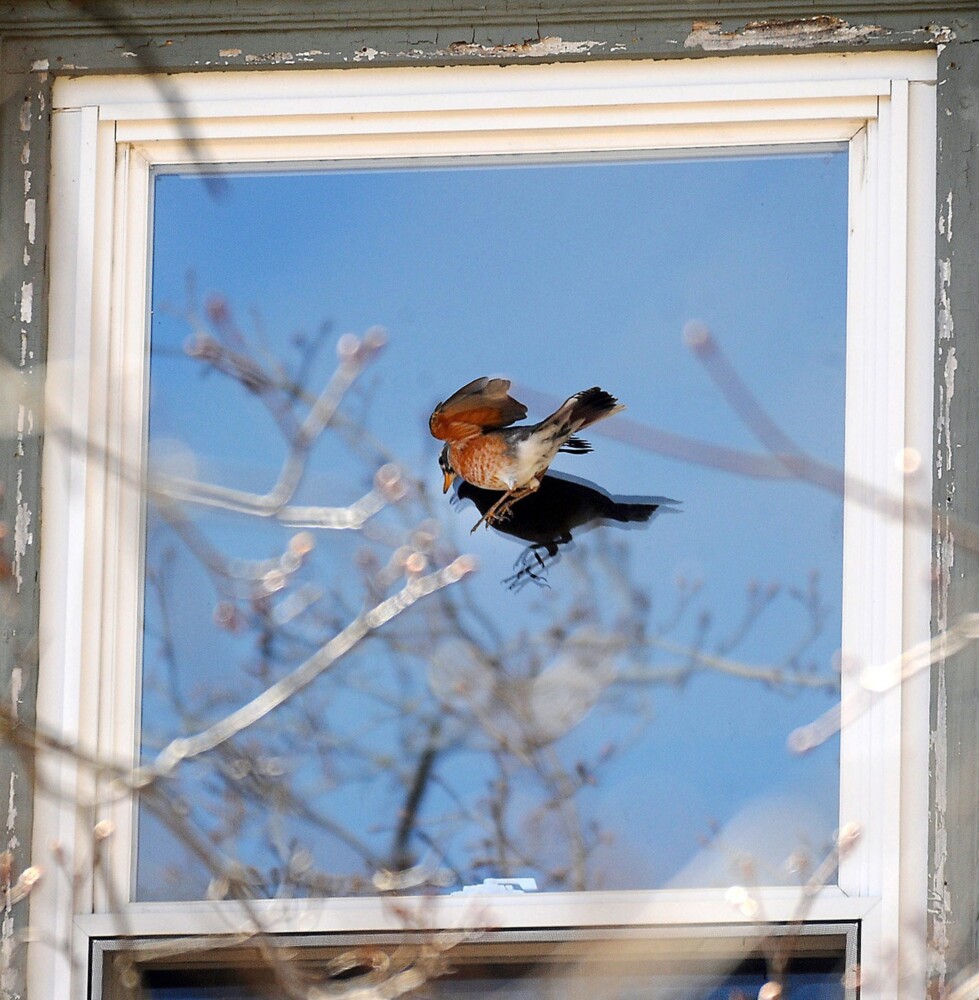
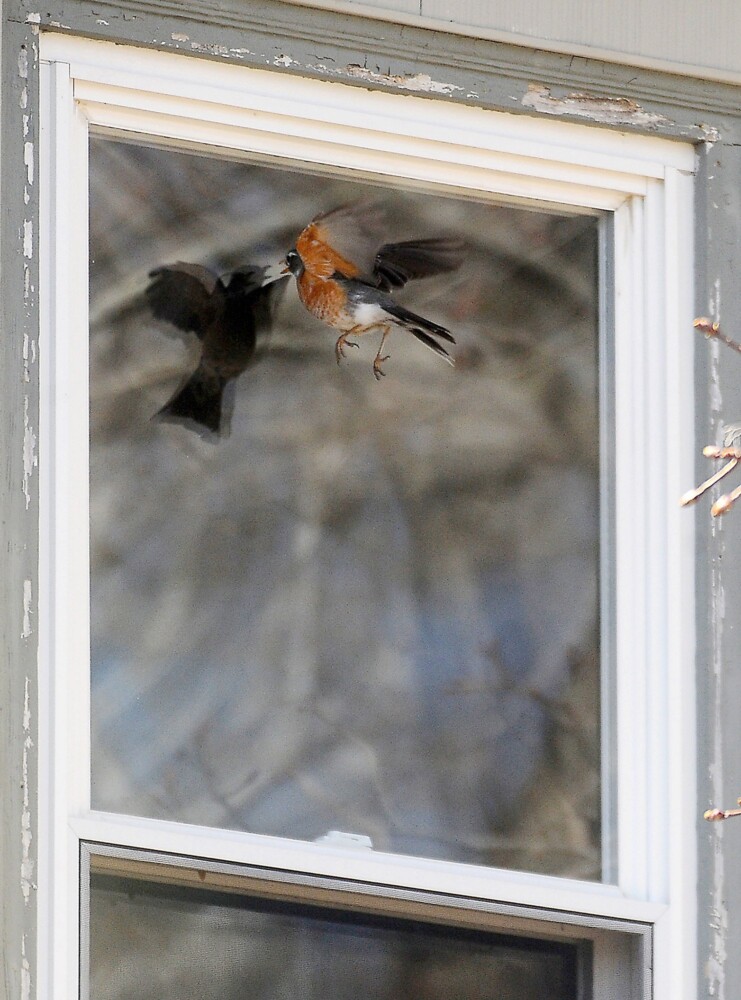

Success. Please wait for the page to reload. If the page does not reload within 5 seconds, please refresh the page.
Enter your email and password to access comments.
Hi, to comment on stories you must . This profile is in addition to your subscription and website login.
Already have a commenting profile? .
Invalid username/password.
Please check your email to confirm and complete your registration.
Only subscribers are eligible to post comments. Please subscribe or login first for digital access. Here’s why.
Use the form below to reset your password. When you've submitted your account email, we will send an email with a reset code.